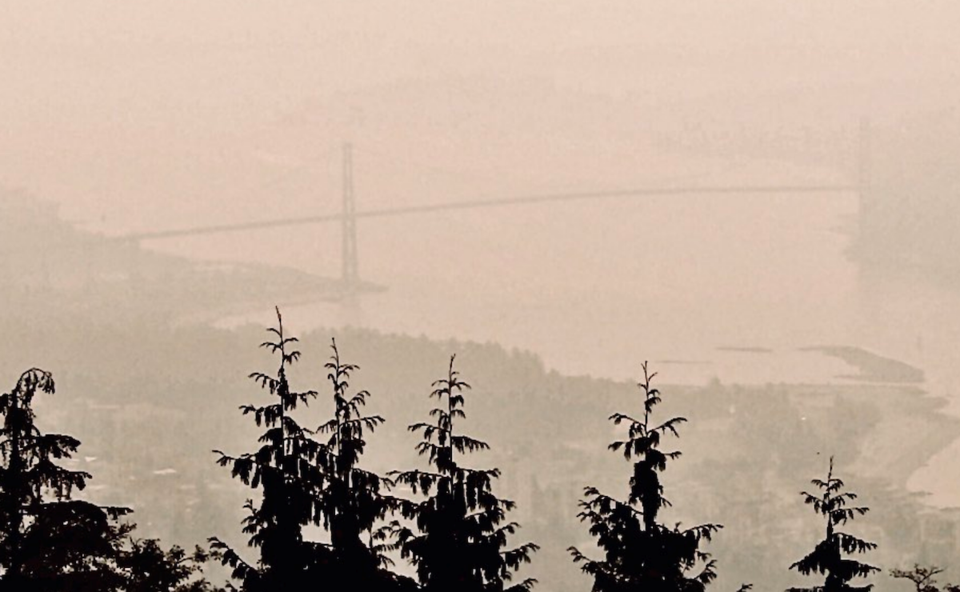In the height of the coronavirus pandemic, people were asked to stay at home so they wouldn’t risk over-burdening the health-care system.
As heavy wildfire smoke blankets the Lower Mainland, people are being asked to avoid strenuous exercise for much the same reason.
“The air quality health index is at a very high risk,” Armel Castellan of Environment Canada said on Friday. That means that the general population can also get sick from over-burdening their lungs and hearts, not just people with health complications, seniors and children.
Heeding advice to avoid jogging or strenuous outdoor activities is not only for everyone’s personal health, he said, but also for the greater societal health.
“We are in a pandemic which is related to a respiratory illness,” Castellan says. “Hospitalizations are at a crux in terms of capacity and these [smoke] events are layered on top of what we've been dealing with for months.”
No one would want there to be fewer hospital beds available as a result of people not heeding the air quality warning.
“For the general population,” he says, “the recommendation is to reduce or reschedule strenuous activities outdoors, especially if you experience symptoms such as coughing and throat irritation. Walking outside is probably not strenuous activity for most people but for others, such as if you're a severe asthmatic, it might be.”
Many areas are waking up to the arrival of thicker smoke this morning from #wildfires in WA and OR. #MetroVancouver and @FVRD1 are currently under an advisory which will likely remain in place for several days. For real-time data visit: https://t.co/Rc2gAFnj2P #airquality pic.twitter.com/wT9PX9Clo6
— Metro Vancouver (@MetroVancouver) September 11, 2020
“Because you're breathing so much faster when you do strenuous activities outside, you are also breathing in more of this fine particulate matter [carried by the smoke],” says Menn Biagen, the B.C. Lung Association’s vice-president for health initiatives and programs. “This could start a series of reactions inside your body or lungs.
“Even if you're a healthy individual, this is not the best time to be doing a lot of exercising or running outside. You need to decrease the strength and duration of your exposure,” she says.
In normal times, other recommendations on how to handle heat and poor air quality advisories are to use public facilities such as malls, libraries and community centres — all places that are compromised because of the pandemic protocols.
One thing everyone can do is to keep their windows closed. This is easier after Thursday’s record-breaking temperatures. Castellan says that a storm coming off the Pacific on Monday will help clean the smoke from the air.
It’s also a good time to turn on air conditioners and air purifiers — if you’ve got them, says Biagen. Surgical masks, which are now widely available because of the pandemic, are helpful for when you are outdoors. While N95 masks are best, it’s also important to ensure that they remain available for front-line workers. If you are in your car, make sure that the air is on recycle mode rather than draw in air from outside the car. She also recommends keeping hydrated and calling the 811 health line if you’re not feeling well.
The BC Lung Association offers more wildfire smoke health tips here.
Martha Perkins is the North Shore News’ Indigenous and civic affairs reporter. This reporting beat is made possible by the Local Journalism Initiative.



